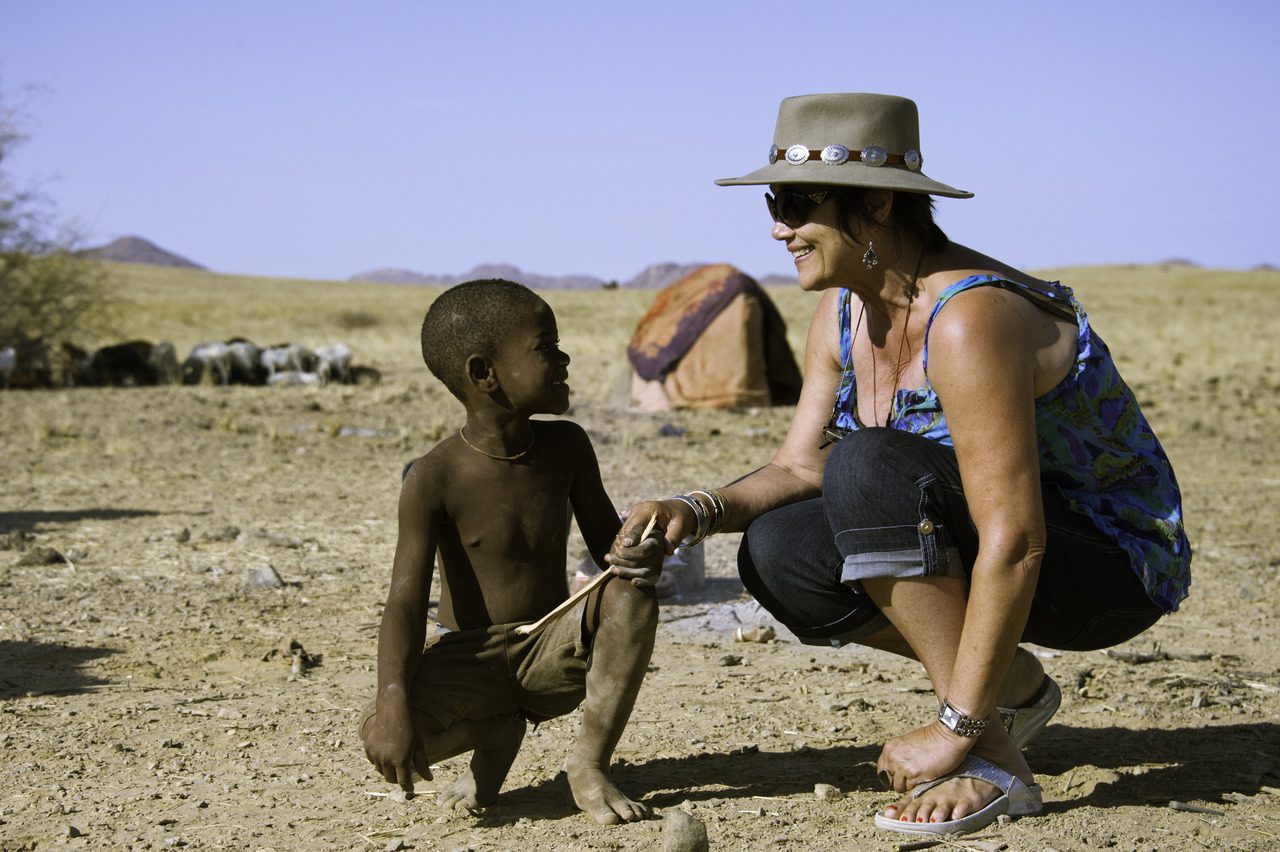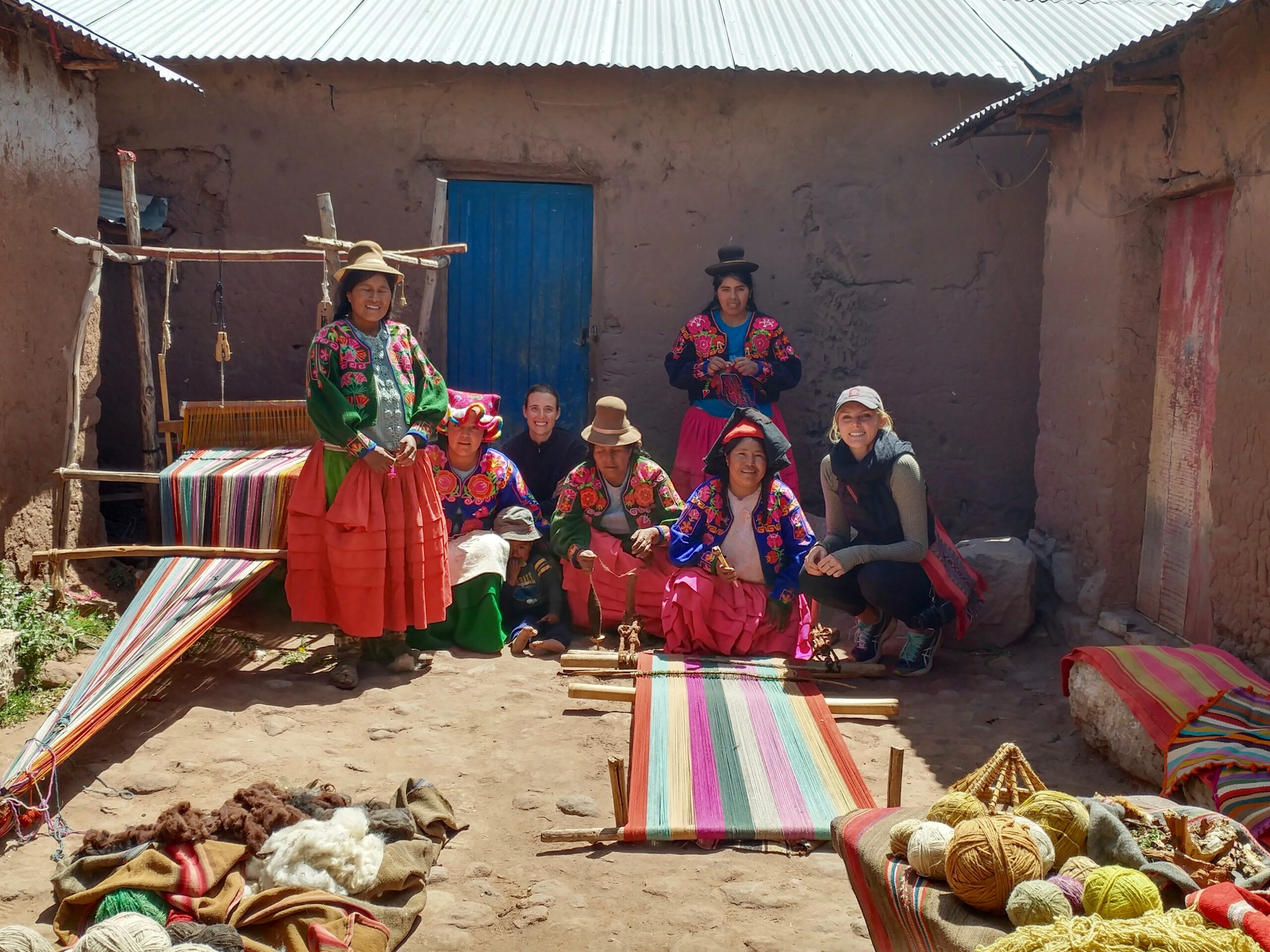Not quite the cultural experience you’re after? We hear you.
Yet so many canned moments, like this, exist all across Africa and other continents, where cultural exchanges become simple commercial transactions. Of course, we all enjoy a good souvenir, or two, to remind us of our amazing adventures. But when buying becomes central to your travels, you’re missing the point. At best, such interactions feel awkward and “put on.” At worst, they harm communities, their traditions, and their ability to thrive in a changing world.
RELATED: Why Wildlife Needs Community Involvement
One of EJ’s core tenets is providing travelers with authentic, meaningful experiences. We want for our clients what we want for ourselves: a spontaneous kind of exchange, which is not monetary. Here’s how we set up our clients to explore communities—be it in Africa, Asia, South America, and beyond—in the most rewarding way.
1. We only work with the best guides, who focus on genuine experiences.

Here’s a new twist on meeting Maasai people: Instead of a contrived visit to a random village, head to your guide’s home, where you’ll get to know their family, friends, and neighbors. Meet the local livestock, along with wild animals, while learning about the challenges of merging western culture with a community’s traditional values.
Our goal is to introduce you to folks who are proud of what they do, love where they live, and are excited to share it all with you. This is why we favor small, often family-run properties (like these eight), where everyone on staff, including the owners and guides, offer ample opportunity for riveting conversation.
2. We encourage you to ditch the stereotypes, and instead pack an open-mind.

“Cultural exchange” doesn’t have to mean “exotic” in the Hollywood sense of the phrase. EJ co-founder, Marcia Gordon, recalls her delight in seeing more and more guides in the Maasai Mara wearing the bright shukas (a durable, thick-cut, cloth) over time. These garments are traditionally worn by the Maasai around the shoulders, and now largely reserved for local guides, serving as cultural badges of honor, demonstrating pride and empowerment. In other words, it’s a uniform, of sorts. Off the clock, most wear long pants and t-shirts, just like us. And are very happy to drive cars and use computers, too.
“Communities and cultures are going to change and that’s wonderful,” Marcia says. “They’re all adapting and it’s arbitrary to maintain ‘traditional’ ways of living when it’s not meaningful. We support communities sustaining values, not simply a particular image of tradition.”
RELATED: Supporting Community & Conservation in Africa
3. We emphasize the importance of embracing the unknown, and putting yourself out there.

The key to all worthwhile engagement—in life, not just travel—is mutual exchange. We’re not talking about money. It’s about going out on a limb and really trying something new, or unexpected. For example, you’re one of only a few English-speakers deep in the Omo Valley and must, therefore, channel your inner mime to communicate. Take the time needed to simply be with another person (even if it’s in silence) and imagine walking in their shoes. Or you strike up a conversation with Samburu women, while they’re beading, about their lives and experiences. Your questions may inspire them to offer up a few inquiries of their own! Sure, it can feel a bit uncomfortable, at first, to engage on a personal level, but if there’s one thing we know from our travels, it’s that you get back what you give. The best experiences happen when you’re a participant, not an observer.
4. We advise you to ease into total immersion.

Magic doesn’t happen according to a timetable. The more you rush and force a cultural connection, the less likely you are to have an organic experience. Most of us don’t have weeks on end to explore (even if we wish we could!), but spending a few extra days in one location can make a world of difference. The intimate moments spent talking and hiking with your local guide, sharing a meal or appreciating a forest through new eyes, or smiling hello to break the ice…you can’t pencil these into any itinerary. You have to let them unfold naturally.
PLAN YOUR VISIT
Call or email us today to begin planning a culturally immersive adventure around the globe.